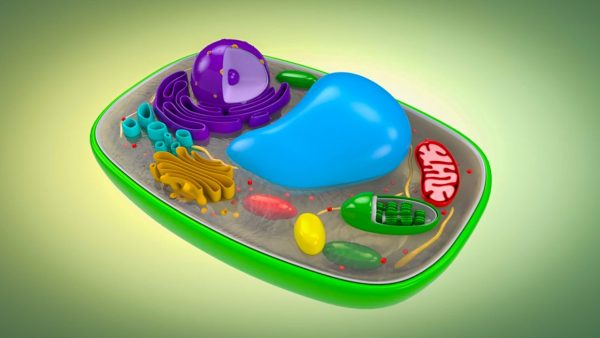Cell Definition
A cell is the basic unit of all living things. For example, humans are multicellular organisms.
View Lesson on Plant & Animal Cells
If you are on a school computer or network, ask your tech person to whitelist these URLs:
*.wistia.com, fast.wistia.com, fast.wistia.net, embedwistia-a.akamaihd.net
Sometimes a simple refresh solves this issue. If you need further help, contact us.
Plant & Animal Cells
Fun Facts
- Cells can be seen with a light microscope up to 1,000 times magnification.
- An amoeba is an example of a unicellular organism.
- Skin cells are flat and packed closely together, while nerve cells have finger like projections that help them send signals.
Why Do We Need To Know About Cell
Learning about cells helps us understand why we get sick and how we can find cures. Scientists look at cells to figure out what causes diseases, which leads to new treatments that can save people’s lives. This shows how important studying cells is for making new medical discoveries.
Knowing about cell biology is not just good for medicine, but it also helps in farming by making crops grow better. Plus, it’s useful in creating new ways to make food, like making meat without needing to farm animals. This shows that studying cells is very important for solving different problems around the world.
Frequently Asked Questions
Related Topics
- Algae Definition
- Analog Signal Definition
- Balanced Force Definition
- Bioindicator Definition
- Cell Definition
- Chloroplasts Definition
- Classify Definition
- Coastal Erosion Definition
- Comparative Anatomy Definition
- Compound Definition
- Conduction Definition
- Continental Drift Definition
- Definition Of Extreme Weather
- Dichotomous Key Definition
- Distillation Definition
- Divergent Boundary Definition
- Earth’s Orbit Definition
- Earthquake Definition
- Ecosphere Definition
- Electromagnetic Radiation Definition
- Electron Definition
- Engineer Definition
- Environment Definition
- Fossil Record Definition
- Geosphere Definition
- Greenhouse Gases Definition
- Group Behavior Definition
- Inclined Plane Definition
- Insulator Definition
- Keystone Species Definition
- Kuiper Belt Definition
- Larvae Definition
- Light Year Definition
- Metamorphosis Definition
- Mitochondria Definition
- Molecule Definition
- Multicellular Definition
- Mutation Definition
- Nucleus Definition
- Opposable Thumb Definition
- Organelle Definition
- Renewable Resource Definition
- Signal Definition
- States Of Matter Definition
- Taxonomy Definition
- Transform Boundary Definition
- Transverse Wave Definition
- Water Quality Definition
Select Grade
Select Subject
Skip, I will use a 3 day free trial
Enjoy your free 30 days trial

































































































































